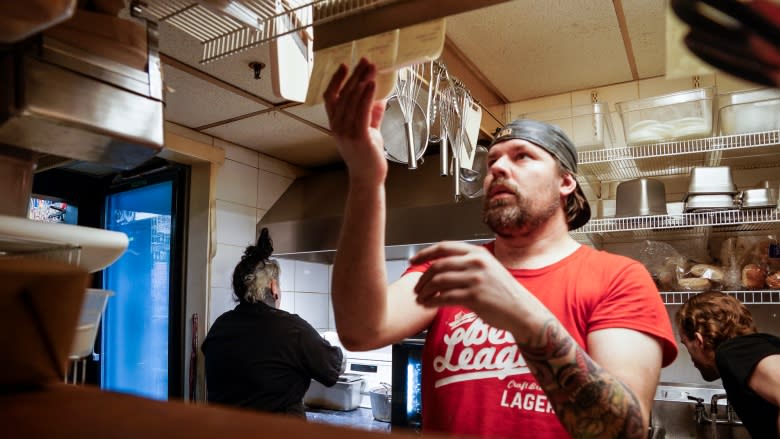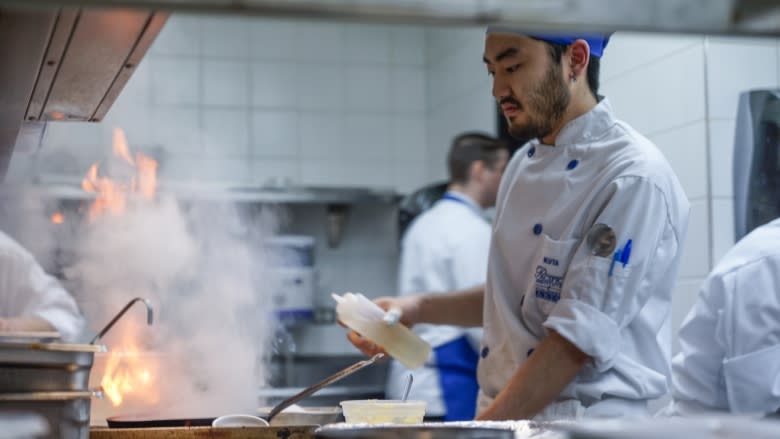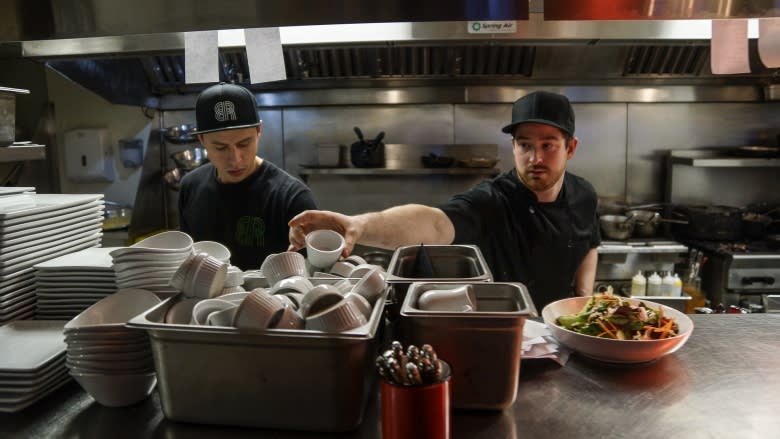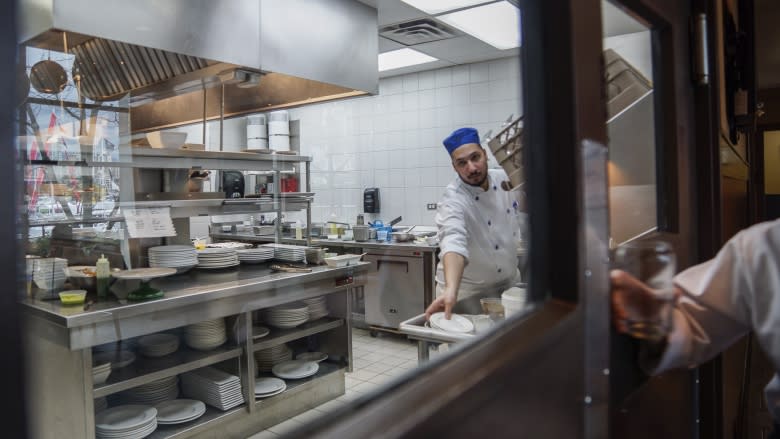Food industry gets inventive in order to attract workers
Jackalope's Neighbourhood Dive in East Vancouver is pulling out all the stops to keep its chefs and cooks in the kitchen.
It has offered to help pay for its cooks to attend culinary school and also has implemented averaging agreements, which means staff can work four days of 10-hour shifts instead of five days of eight-hour shifts.
"There is so much demand for the people that do have skills that it's harder to recruit those people," said head chef Jeffrey Mickelson.
"People aren't scared to just to pack up and leave if it's not proper conditions or if they're not getting paid enough or if they aren't being respected," he said.
The restaurant's initiatives are examples of the kind of recommendations put forward by the B.C. Restaurant and Food Services Association to deal with the industry-wide labour shortage that has forced some restaurants to close or reduce their hours of operation.
The association spent six months researching the problem and on Tuesday presented its findings to to a food-industry a forum held at the Italian Cultural Centre.
"One of our biggest audiences is the millennials, who have a different way and a different cultural expectation than we've perhaps been used to in the past," said Ian Tostenson, President and CEO of the British Columbia Restaurant and Food Services Association.
Tostenson said the workplace culture is changing to accommodate that.
"You're seeing us actually putting together a benefits program for part-time workers which is really important and has never been done, and you're seeing restaurants responding to actually looking at career paths," he said.
Another challenge for the industry, Tostenson said is its reputation that kitchens are an intimidating place to work.
"That sort of celebrity chef culture that has been on TV has been a bit intimidating for people," he said.
Blueprint executive chef Karl Gregg said that the culture has shifted.
"The stereotypes of hot-headed chefs, yelling and screaming and heat in the kitchen are from years gone past ... the culture has changed so much in the last 15 to 20 years," said Gregg.
Wages have also increased in order to attract skilled labour, said Tostenson.
"We pay above minimum wage. You can't have somebody coming for minimum wage in the kitchen anymore," said Edgar Rahal, partner of Second Floor Eatery and Bar on Robson Street.
"If you don't pay them, someone else is going to pay them that wage and you're going to lose them," he said.
But given how much a one-bedroom apartment in Vancouver costs, the few dollars in increased wages isn't enough for workers to live within the city.
Another gap that needs to be addressed is transportation.
"It starts with transportation to the suburbs, because Vancouver's real estate prices aren't going to change overnight," said Julian Bond the vice-president of Pacific Institute of Culinary Arts.
"The SkyTrain is good but not set up for a cook's hours. If a cook is working late Saturday night, they're never getting home. Unless they catch a cab or maybe there are a couple of midnight buses they can catch," he said.








